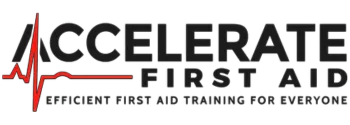
Asthma and Anaphylaxis Certification Brisbane: Complete Training Guide
Last Tuesday, Emma from our accounts team was eating her lunch when suddenly she couldn't breathe. Her face went red, her throat started closing up, and she was frantically reaching for something in her bag. Turns out, the new café downstairs had used peanut oil in their supposedly "nut-free" salad dressing. Emma's severe peanut allergy was triggered, and she needed her EpiPen immediately.
Here's the thing that kept me up that night - what if Emma had been new to our office? What if she'd collapsed in the break room when nobody was around? What if our team didn't know how to help her? As an HR manager responsible for 85 employees across three Brisbane locations, these scenarios terrify me more than any compliance audit ever could.
You're probably reading this because you've got that same knot in your stomach. The one that tightens when you think about workplace emergencies, about being responsible for someone's life, about whether your team would know what to do if someone's asthma attack turned life-threatening or if an allergic reaction spiraled out of control.
Brisbane's humid climate doesn't help either. Our city's weather can trigger asthma attacks more frequently than in other parts of Australia, and with our diverse food scene and changing work environments, allergen exposure is becoming more common in workplaces.
That's where asthma and anaphylaxis certification comes in. Not just another box to tick for compliance, but real training that gives you and your team the confidence to handle these emergencies properly. In Brisbane, we're talking about specific courses - the 22300VIC for asthma management and 22556VIC for anaphylaxis - that teach you exactly what to do when someone's life depends on your next move.
What is Asthma and Anaphylaxis Certification?
Asthma and anaphylaxis certification in Brisbane covers two specific courses that teach you how to recognize and respond to these life-threatening conditions. The 22300VIC Course in Asthma Management and the 22556VIC Course in Anaphylaxis Management are nationally recognized training programs that give you the skills and legal protection you need when managing workplace emergencies.
Here's what these certifications actually cover:
22300VIC Asthma Management: How to recognize asthma symptoms, assist with medication, and respond when someone's inhaler isn't working
22556VIC Anaphylaxis Management: Emergency response for severe allergic reactions, including EpiPen administration and calling for help
Legal requirements: What you must do by law when someone has a medical emergency at work
Documentation: How to record incidents properly for compliance and insurance purposes
Most Brisbane workplaces need both certifications because asthma and anaphylaxis can happen to anyone, anywhere.

Understanding Asthma and Anaphylaxis Certification in Brisbane
What is 22300VIC Course in Asthma Management?
The 22300VIC is your team's training for handling asthma emergencies. This isn't just about knowing someone has asthma - it's about what to do when their regular inhaler stops working and they're struggling to breathe.
In Brisbane, this course covers the specific challenges our climate creates. Our humidity can make asthma symptoms worse, and our seasonal changes mean different triggers throughout the year. You'll learn how to assist with different types of inhalers, when to call an ambulance, and how to keep someone calm while they're struggling to breathe.
What is 22556VIC Course in Anaphylaxis Management?
The 22556VIC focuses on anaphylaxis - those severe allergic reactions that can kill someone within minutes if not treated properly. This course is about speed, accuracy, and confidence when every second counts.
The training covers common allergens you might encounter in Brisbane workplaces - nuts, shellfish, bee stings, latex, and even some medications. You'll learn to recognize the signs of anaphylaxis, how to use an EpiPen correctly, and what to do while waiting for paramedics to arrive.
Key Differences Between the Two Certifications
Asthma emergencies - usually develop over minutes or hours, giving you more time to respond. The person often knows they have asthma and carries medication.
Anaphylaxis - happens fast - sometimes within seconds. The person might not know they're allergic to something, and you need to act immediately. EpiPens are different from asthma inhalers, and the injection technique needs to be perfect.
Who Needs Asthma and Anaphylaxis Training?
Mandatory Requirements for Childcare Centers
If you're managing a childcare center in Brisbane, this training isn't optional - it's the law. Every childcare service in Queensland must have staff trained in asthma and anaphylaxis management. Your childcare center needs at least one trained staff member on site at all times.
School and Education Sector Requirements
Schools need to manage students with known conditions, but they also need to handle the unexpected. If you have students with asthma or severe allergies on your rolls, you need trained staff who can help them.
Workplace Health and Safety Obligations
While asthma and anaphylaxis training might not be legally mandatory for every workplace, your general duty of care obligations under Queensland workplace safety laws might require it. If you have employees with known asthma or allergies, you need to provide a safe workplace.
High-Risk Industries in Brisbane
Some Brisbane industries face higher risks:
Food service and hospitality - You're handling allergens every day, and customer reactions can be severe and sudden.
Healthcare and aged care - Your patients might have multiple conditions, and medication interactions can trigger serious reactions.
Construction and outdoor work - Brisbane's climate, dust, and environmental factors can trigger asthma.
Manufacturing and warehousing - Chemical exposure, dust, and industrial allergens create additional risks.
Course Content and What You'll Learn
Recognizing Symptoms
Asthma symptoms your team will learn to recognize:
Wheezing or whistling sounds when breathing
Shortness of breath or difficulty talking
Chest tightness or pain
Coughing, especially at night or early morning
Anaphylaxis symptoms are often more dramatic:
Difficulty breathing or wheezing
Swelling of face, lips, tongue, or throat
Rapid, weak pulse
Skin reactions like hives or flushing
Nausea, vomiting, or diarrhea
Dizziness or fainting
Emergency Response Procedures
For asthma emergencies:
Stay calm and help the person sit upright
Help them use their inhaler
If their inhaler doesn't work, call emergency hotline immediately
Stay with them and keep them calm while waiting for help
Be ready to start CPR if they become unconscious
For anaphylaxis:
Recognize the signs quickly
Call emergency hotline immediately
Help the person use their EpiPen or administer it yourself
Have them lie down with legs elevated
Be prepared to give a second EpiPen if symptoms don't improve
Start CPR if they become unconscious
Medication Administration
Using inhalers: The training shows you how to help someone use their inhaler correctly. You'll learn about spacers, different types of inhalers, and what to do if someone's inhaler is empty or not working.
EpiPen administration: You'll practice with trainer EpiPens until you can use them confidently. You'll learn where to inject, how hard to press, and how long to hold the pen in place.
Legal Requirements and Documentation
The training covers your legal obligations and how to document everything properly. You'll learn about consent - when you can help someone with their medication and when you need to wait for paramedics. The documentation part protects you legally and helps with insurance claims if needed.

Certification Process and Requirements
Course Duration and Format Options
Both courses take about 3-4 hours to complete each. You can often do both courses in the same day.
Face-to-face training - is the most popular option in Brisbane. Your team gets hands-on practice with real equipment, and the trainer can answer questions specific to your workplace.
Group training - is where you can really save money. If you've got 8-10 people or more, most Brisbane providers will give you significant discounts.
Assessment and Practical Components
The assessment is practical and focused on real-world skills. You'll need to demonstrate that you can recognize symptoms, follow emergency procedures, and use equipment correctly.
Practical assessments include:
Demonstrating correct inhaler techniques
Showing how to administer an EpiPen safely
Walking through emergency response procedures
Role-playing different emergency scenarios
Certification Validity and Renewal
These certifications don't last forever. Both certifications are valid for three years. That means you need to plan for recertification. Smart HR managers keep a spreadsheet with everyone's expiry dates so they can book refresher training before certifications lapse.
Choosing the Right Training Provider in Brisbane
RTO Accreditation and Quality Standards
Make sure your training provider is a Registered Training Organisation (RTO). If they're not an RTO, your certificates won't be legally valid. Look for the RTO number on their website and check it against the training.gov.au database.
Quality indicators to look for:
Current RTO registration with ASQA
Experienced trainers with relevant qualifications
Good Google reviews from other Brisbane businesses
Modern training equipment and facilities
Flexible Scheduling Options
Your training provider should work around your business needs. Look for providers who offer multiple session times, weekend availability, same-day certification, and make-up sessions for people who miss the original training.
Taking Action: Your Next Steps
You can read about asthma and anaphylaxis training all day, but at some point you need to actually book it. Every day you wait is another day your team isn't prepared for an emergency.
Step 1: Assess your actual needs. Do you have employees with known asthma or allergies? Are you in a high-risk industry?
Step 2: Count your people. How many staff members need certification? Remember to include managers and supervisors.
Step 3: Get quotes from Brisbane providers. Contact 3-4 RTO-accredited training companies. Ask about group discounts and on-site options.
Step 4: Book the training. Choose your provider based on quality and value. Book both asthma and anaphylaxis training together.
Step 5: Plan for recertification. Set calendar reminders for 2.5 years from now so you can book refresher training before certifications expire.
Look, I know there are always reasons to delay. Budget pressures, busy schedules, competing priorities. But what's the consequence if someone's child, parent, or partner doesn't come home from work because your team didn't know how to help them?
The peace of mind alone is worth the investment. Knowing that your team can handle emergencies confidently, that you're legally protected, and that you've done everything possible to keep your workplace safe.
Brisbane has excellent training providers who understand local conditions and workplace challenges. The courses are practical and designed for busy professionals like you. Your team will actually enjoy the training because it's hands-on and relevant to their work.
Don't let another month go by wondering "what if." Get your team trained, get your business protected, and get yourself some peace of mind.
Ready to take the next step? Contact us: 0434778243 | 04FIRSTAID. Because when it comes to workplace safety, being prepared isn't just smart business - it's the right thing to do.


